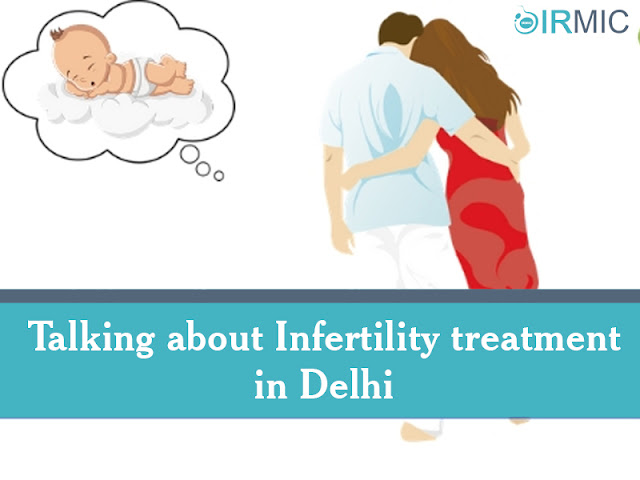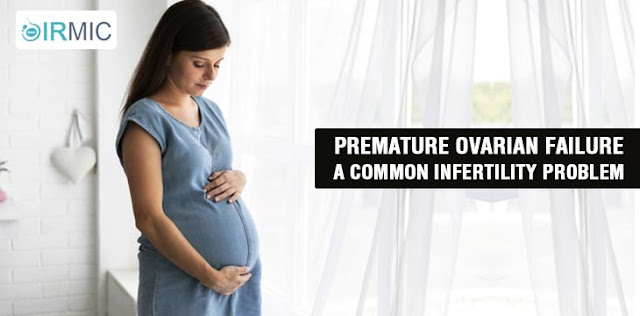Intrauterine Insemination: An Artificial Insemination Method
Your choice of infertility procedure is extremely peculiar and
managed by the expert comment, as the fertility expert determines the
cause you can’t get pregnant and measures the best possibilities for
conceiving a healthy baby. Many women start their therapy with a
longstanding preference of intrauterine insemination (IUI). Not all
ladies are excellent candidates for IUI, so let’s examine the procedure
and when it’s a fertility remedy you should reconsider.
During the wash, non-motile sperm are eliminated, strengthening the healthy sperm into a small volume. Then a catheter is attached to a syringe to place the sperm inside the uterus, confined to the fallopian tube cracks. The sperm, however, require to travel up the fallopian tube, where they adhere to the egg. But related to traveling through the cervix and to the top of your uterus, IUI mainly improves the probability that sperm will breed the egg.
You can also examine IUI when your infertility is the outcome of a hostile cervical environment (cervical mucus problems), cervical scar tissue blocking sperm, low sperm count, reduced sperm motility and emission problems. IUI is not a valid choice if your fallopian tubes are obstructed, you have a little number of eggs, or your eggs aren’t viable. Ladies with an account of pelvic infections, medium to critical endometriosis, or a hormonal balance require to have their underlying ailment reviewed before acknowledging IUI.
IUI itself isn’t correlated with an enhanced risk of multiple pregnancy twins, triplets or more. But, when correlated with ovulation-inducing medicines, the risk of multiple pregnancies raises significantly. Multiple pregnancies have higher risks than a single pregnancy does, including early labor and low birth weight.
Content Source : http://drrksharmaivf.in/blog/intrauterine-insemination-an-artificial-insemination-method/
What Is Done During Intra Uterine Insemination Procedure (IUI)?
IUI is a type of artificial insemination and the method typically starts with medicine that triggers egg maturation and ovulation. Next, your monthly cycle is closely monitored with an aggregate of ultrasound, blood tests, and possibly at-home ovulation collections, so we can embed sperm at the moment you ovulate. When it’s the season for your IUI, you can use a sperm specimen from your co-worker or donor sperm. The sperm has to undergo the process of sperm washing, a gentle method to remove semen and biochemicals that could aggravate your uterus.During the wash, non-motile sperm are eliminated, strengthening the healthy sperm into a small volume. Then a catheter is attached to a syringe to place the sperm inside the uterus, confined to the fallopian tube cracks. The sperm, however, require to travel up the fallopian tube, where they adhere to the egg. But related to traveling through the cervix and to the top of your uterus, IUI mainly improves the probability that sperm will breed the egg.
Infertility Problems Treated With IUI
IUI is a possible alternative when you have unexplained barrenness, which suggests we can’t ascertain the underlying purpose of your infertility. While that’s usually frustrating, it’s the analysis in around 10 to 20% of the infertile couple and you can take courage because fertility treatments are normally flourishing in women with unexplained infertility.You can also examine IUI when your infertility is the outcome of a hostile cervical environment (cervical mucus problems), cervical scar tissue blocking sperm, low sperm count, reduced sperm motility and emission problems. IUI is not a valid choice if your fallopian tubes are obstructed, you have a little number of eggs, or your eggs aren’t viable. Ladies with an account of pelvic infections, medium to critical endometriosis, or a hormonal balance require to have their underlying ailment reviewed before acknowledging IUI.
What Happens In Intrauterine Insemination Procedure?
The intrauterine insemination needs around 15 to 20 minutes and is normally done in a doctor’s office or clinic. The IUI method itself takes just a moment or two and needs no medicines or pain relievers. Your doctor or an especially trained therapist conducts the method. While resting on an exam table, you’ll put your legs into stirrups and a speculum will be injected into the vagina comparable to what you encounter during a Pap test. Throughout the procedure, the doctor or nurse adds a vial holding a sample of healthy sperm to the end of a lengthy, thin, catheter. Next, the catheter is inserted into the vagina, through the cervical opening, and into the uterus. the catheter aids in pushing the sperm sample through the tube into your uterus.Risk Associated With Intrauterine Insemination
Intrauterine insemination is a comparatively simple and reliable method, but still, there is always some risk associated. There’s a small risk of acquiring infection as a result of vaginal bleeding which is often observed in the process while placing the catheter in the uterus but it’s not that much of a risk. That it will impact the chances of pregnancy.IUI itself isn’t correlated with an enhanced risk of multiple pregnancy twins, triplets or more. But, when correlated with ovulation-inducing medicines, the risk of multiple pregnancies raises significantly. Multiple pregnancies have higher risks than a single pregnancy does, including early labor and low birth weight.
Reference
If you are looking for IUI treatment in Delhi at IRMIC try meeting Dr. RK Sharma the best infertility expert in Delhi.Content Source : http://drrksharmaivf.in/blog/intrauterine-insemination-an-artificial-insemination-method/




Gynecologist in Indore near Vijay Nagar
ReplyDeleteList of gynecologist in Indore
Best Gynecologist in Indore